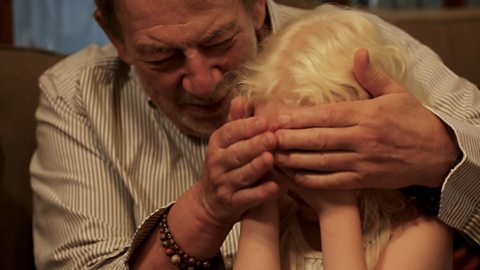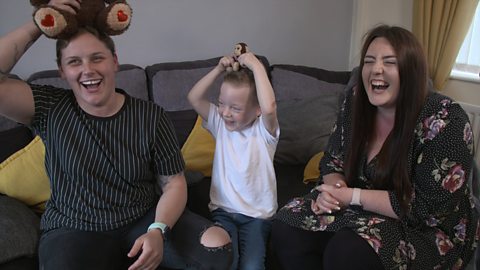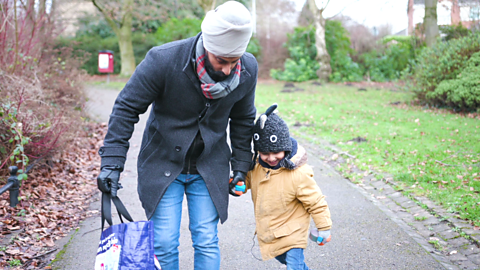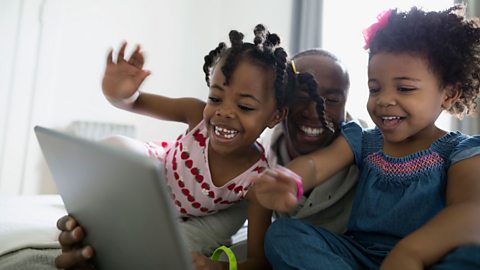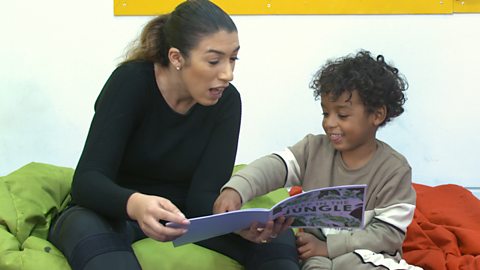Home > Activities > 4-5 years
Unpacking shopping bags with kids might not be the first learning opportunity you think of, but it's a great chance to chat with your child all about the things you've bought and where they go.
Check out how one family chat through putting things away below.
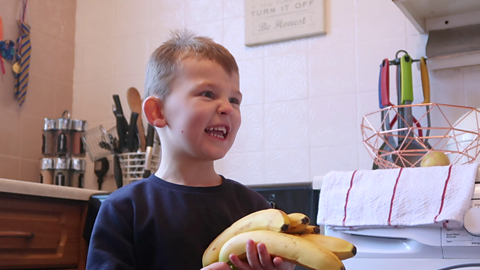
The benefits of unpacking shopping bags together
- It lets children practise naming all of the things you've brought back from the supermarket supermarket and helps them make the connection with the experience of shopping and home.
- It lets children practise using words to describe where things go, like 'in the cupboard', 'in the fridge' and 'on the table'.
- It gives you lots of opportunity to ask them questions about the items you've brought home.
- It lets children feel like they're being helpful.
Ideas for unpacking shopping with kids
Before you unpack, ask them if they can remember what you bought at the shops. This is a very effective way to build up the memory skills needed for language and learning.
Try asking them lots of questions about what you're unpacking and where it goes, for example 'What fruit is in there? Where do the apples go?'.
Ask them questions about their preferences - 'what do you like with your beans?' or 'what's your favourite fruit?'.
Why not try a memory game when unpacking?
Ask your child if they can find beans, bread, and teabags, for example. See how many of these items your child can remember at once. If 3 is too many try just one or 2 to start with and build up.
Auditory memory is an essential skill for language development.
You could ask them about what meals you might make with the food.
It can be an opportunity for them to practise grouping things. Try asking them where the tins go or where the fruit goes and see if they can recognise categories.
Other organisation games
You could try putting things in order together with your child.
Or maybe you could play some games while tidying up together?
Play a rhyming game as you pull each item out of the bag. Say, "I have bread, what rhymes with bread?"
You can even make up silly songs too. Sing, "I have bread, I will put it on my head". Learning about rhymes supports early reading and writing skills later on.


